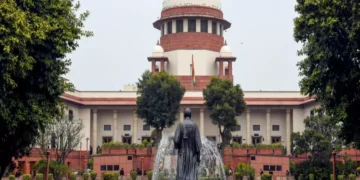Supreme Court Clarifies Timelines for Governors on Assent to Bills Do Not Alter Constitutional Provisions
In a significant ruling, the Supreme Court of India has laid down specific timelines within which State Governors must act on bills passed by their respective legislatures. The Court emphasized that while Article 200 of the Constitution does not prescribe a definitive timeframe for gubernatorial action, an indefinite delay undermines the legislative process and the democratic mandate of elected governments.
A bench comprising Justices JB Pardiwala and R Mahadevan held that the absence of an express time-limit under Article 200 cannot be interpreted as permitting indefinite inaction by a Governor. Such delays, the Court said, could effectively stall the functioning of the state’s legislative machinery and amount to the exercise of a “pocket veto.”
Timelines Prescribed by the Court
In its judgment dated April 8, the Court outlined the following timelines for action under Article 200:
- Withholding or Reservation on Ministerial Advice: The Governor must act “forthwith” and within a maximum of one month.
- Withholding Assent Contrary to Advice: If the Governor withholds assent against the advice of the Council of Ministers, the bill must be returned with a message within three months.
- Reservation Contrary to Advice: If the Governor chooses to reserve the bill for Presidential consideration contrary to ministerial advice, such reservation must occur within three months.
- Reconsidered Bills: For bills returned after reconsideration, the Governor must grant assent “forthwith,” and no later than one month.
These timelines are drawn from the recommendations of the Sarkaria and Punchhi Commissions, both of which examined Centre-State relations and emphasized the need for procedural clarity in the Governor’s role.
Judicial Interpretation, Not Constitutional Amendment
The Court was mindful of potential concerns that these directions may be construed as judicial overreach. However, the Bench clarified that it was not amending the Constitution by prescribing these timelines.
“The prescription of a general time-limit by this Court within which the ordinary exercise of power by the Governor under Article 200 must take place, is not the same thing as amending the text of the Constitution,” the judgment stated. It emphasized that:
- The introduction of these timelines supports the underlying intent of Article 200 without altering its structure.
- The move aims to reinforce legislative efficiency and prevent abuse of discretion.
- These are guiding principles for judicial review, not automatic triggers for consequences like deemed assent.
The Court further explained that such judicially evolved timelines do not have the same implications as legislatively prescribed timeframes, such as those found in Article 75 of Pakistan’s Constitution or Article I, Section 7 of the U.S. Constitution. In those jurisdictions, inaction can result in automatic assent — a mechanism the Indian Supreme Court explicitly avoided.
No Deemed Assent, But Justiciable Delays
Importantly, the Court refrained from introducing the concept of deemed assent for failure to act within the prescribed time. However, it clarified that in cases of unjustified delay, courts would be empowered to review the Governor’s conduct and direct a time-bound resolution. In exceptional situations, the Court may invoke Article 142 to grant relief.
By leaving scope for the Governor to justify delays on reasonable grounds, the judgment strikes a balance between institutional accountability and operational flexibility.
Safeguarding Democratic Governance
The Court underscored that a Governor’s prolonged inaction could impair governance, particularly given that elected governments operate within fixed five-year mandates. Delays in giving assent to bills can obstruct timely policy implementation, adversely affecting public perception and, in turn, future electoral prospects of the ruling party.
The problem, the Court noted, is further aggravated when the state and central governments are led by different political parties. In such scenarios, it becomes even more crucial for the Governor to exercise their functions with constitutional impartiality.
“Any deliberate inaction on part of the Governor in assenting to bills or reserving them for the consideration of the President… must be viewed as a serious threat to the federal structure of the country,” the Court stated.
A Benchmark for Judicial Review
In conclusion, the Supreme Court clarified that the timelines should serve as a lodestar — a benchmark for courts to assess gubernatorial conduct under Article 200, and not as rigid constitutional mandates. These directions aim to ensure timely governance, uphold the spirit of federalism, and preserve the integrity of India’s democratic institutions.
Also Read : PM Modi Backs BJP-AIADMK Alliance for 2026 TN Polls: Vows to Uproot ‘Corrupt, Divisive’ DMK















 Categories
Categories










